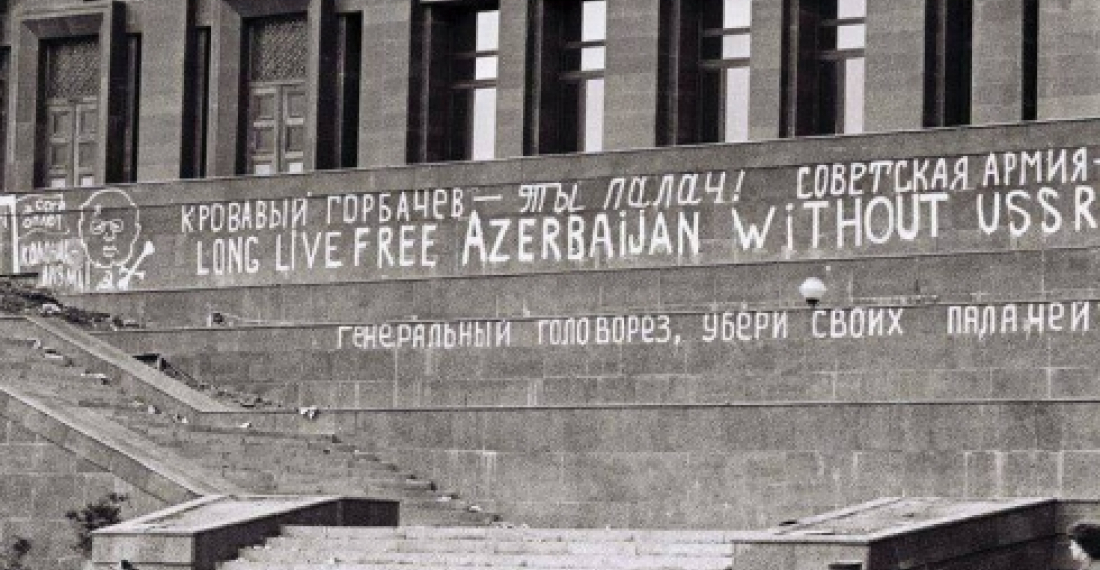The people of Azerbaijan are marking the 25th anniversary of Black January. On 19 January 1990, the Presidium of the Supreme Soviet of the USSR approved a decree signed by Mikhail Gorbachev, introducing a state of emergency in Baku and some other places in the Azerbaijani SSR.
Late at night on January 19, 1990, 26,000 Soviet troops entered Baku, smashing through the barricades in order to crush ongoing protests led by the Popular Front. In the incidents that followed more than one hundred Azerbaijani civilians were killed. A number of Soviet soldiers also died in the clashes that ensued.
Marking the 25th anniversary of the massacre Azerbaijani President Ilham Aliev on Tuesday visited the Alley of Marthys and laid a wreath at the memorial of the Eternal Flame.
Commonspace.eu political editor made this comment on the anniversary and its significance:
Black January is of huge significance in the history of modern Azerbaijan. It marks the moment when Soviet power in Azerbaijan became untenable, and it contributed significantly to the collapse of the USSR. The deployment of troops and tanks on the streets of a major Soviet city, and the massacre that followed, tarnished the image of the USSR and its leadership. Mikhail Gorbachov was later to admit that declaring a state of emergency in Baku, which subsequently opened the way for the military deployment, was the biggest mistake of his political career.
The incidents also marked a low point in relations between Azerbaijan and Russia and the issue remains a sensitive one between the two nations that now co-exist as seperate and independent countries. At a moment when the current Azerbaijani government maintains closer relations with Russia than has been the case at any other time in the history of independent Azerbaijan, the anniversary causes some awkwardness to the leadership in Baku. Thus whilst the anniversary is marked officially there seems to be an attempt by the current government to play it down.
On the other hand the people of Azerbaijan remain bitter that the events of Black January were not properly assessed by the international community at the time. Unlike the outcry that followed similar incidents in the Baltic States a year later there was hardly any reaction in the international community to the Black January events. Some Azerbaijanis argue that history is repeating itself. At a time of an unprecented crackdown on human rights and civil society activists in Azerbaijan in the last year the international reaction has been muted.
source: commonspace.eu
ohoto: Anti Soviet graffiti on the walls of the main government building in Baku greeted the Soviet Army as it deployed in response to a state of emergency declared by the Presidium of the USSR. Dozens of civilians were massacred in subsequent incidents (archive photo)







